The Day We Went to Bangor…
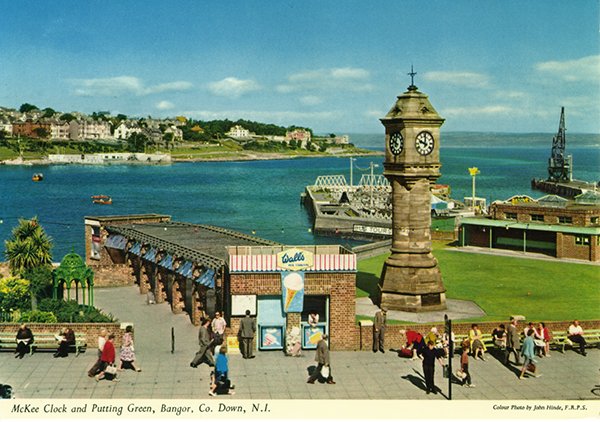
Reflecting on my experience as a Festival Assistant with the Open House Festival over the Seaside Revival weekend, I will use Graham Gibb’s model of reflection to evaluate how I managed my expectations of my role. “Gibb’s cycle consists of six stages that guide you through the stages of the reflective process by asking a series of cue questions” displayed in figure two (Jasper, 2013, p.80).
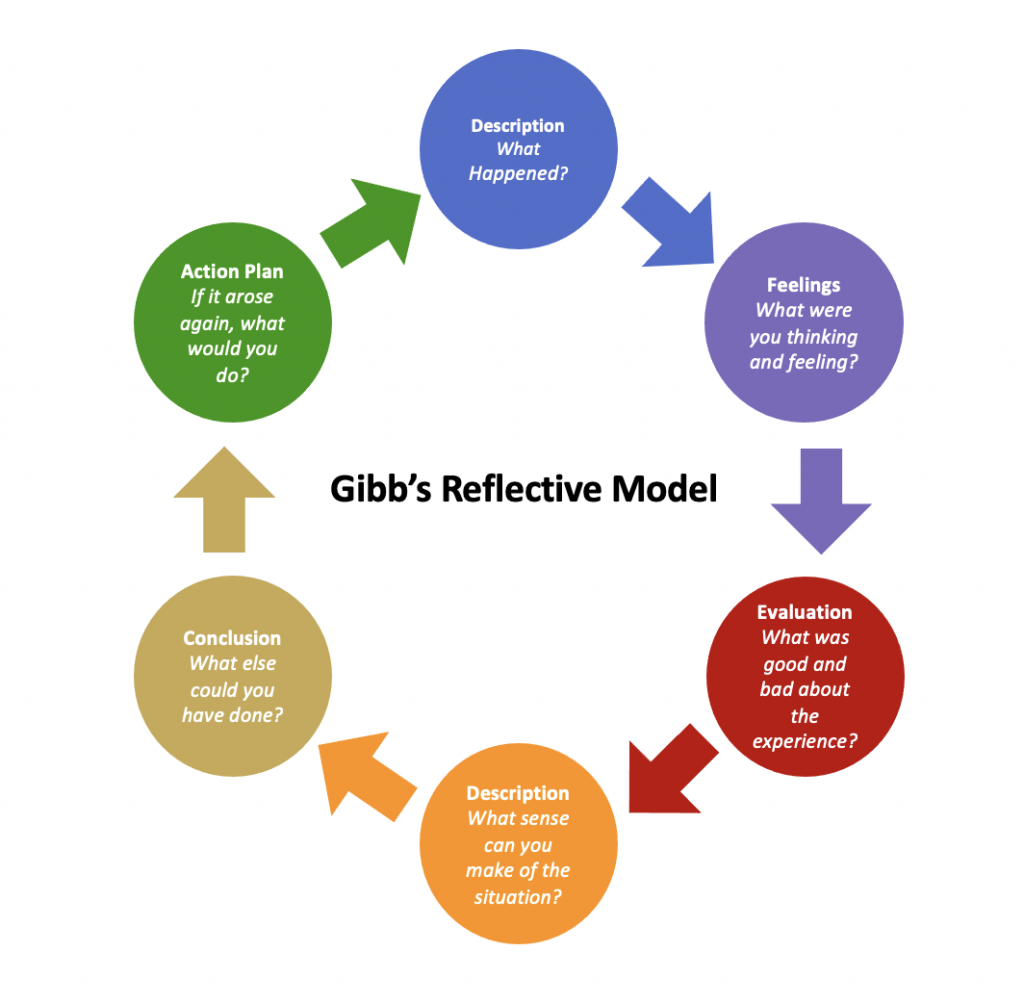
Seaside Revival is a weekend-long vintage event organised by the Open House Festival as part of their events programme run in August each year. The first day is the highlight of the weekend, celebrating vintage music, dance, fashion, and cars at the McKee Clock in Bangor city centre; the second day ended the weekend with vintage music by Andrew’s Sisters, the Victory Rollers, and Dave Martin and Casino Cats in Ward Park.
My time being involved with the operations took place over three days. On the Friday, I was helping Front of House and Crew volunteers decorate the site with event banners and vintage bunting, making it presentable for patrons visiting the next day. I also completed a site walk with the Operations Manager, so I was aware of the plans for the next day and the risks associated with them. The second day was the main day where I shadowed the Operations Manager and was able to witness how quickly they had to think on their feet and rectify unplanned situations. The final day in the park concluded the weekend by gathering feedback from patrons who had attended the events over the weekend.
Initially, I felt both nervous and excited to be a part of this event. I was anxious throughout the set-up because I knew I needed to make a great impression and build a professional relationship with the Operations Manager. We would be working together closely throughout the month of events planned, so it was imperative that I understood their way of working and how to communicate effectively with them. On the other hand, I was certainty eager to observe and glean invaluable skills from an industry professional as I had not yet had the opportunity to do this on my placement.
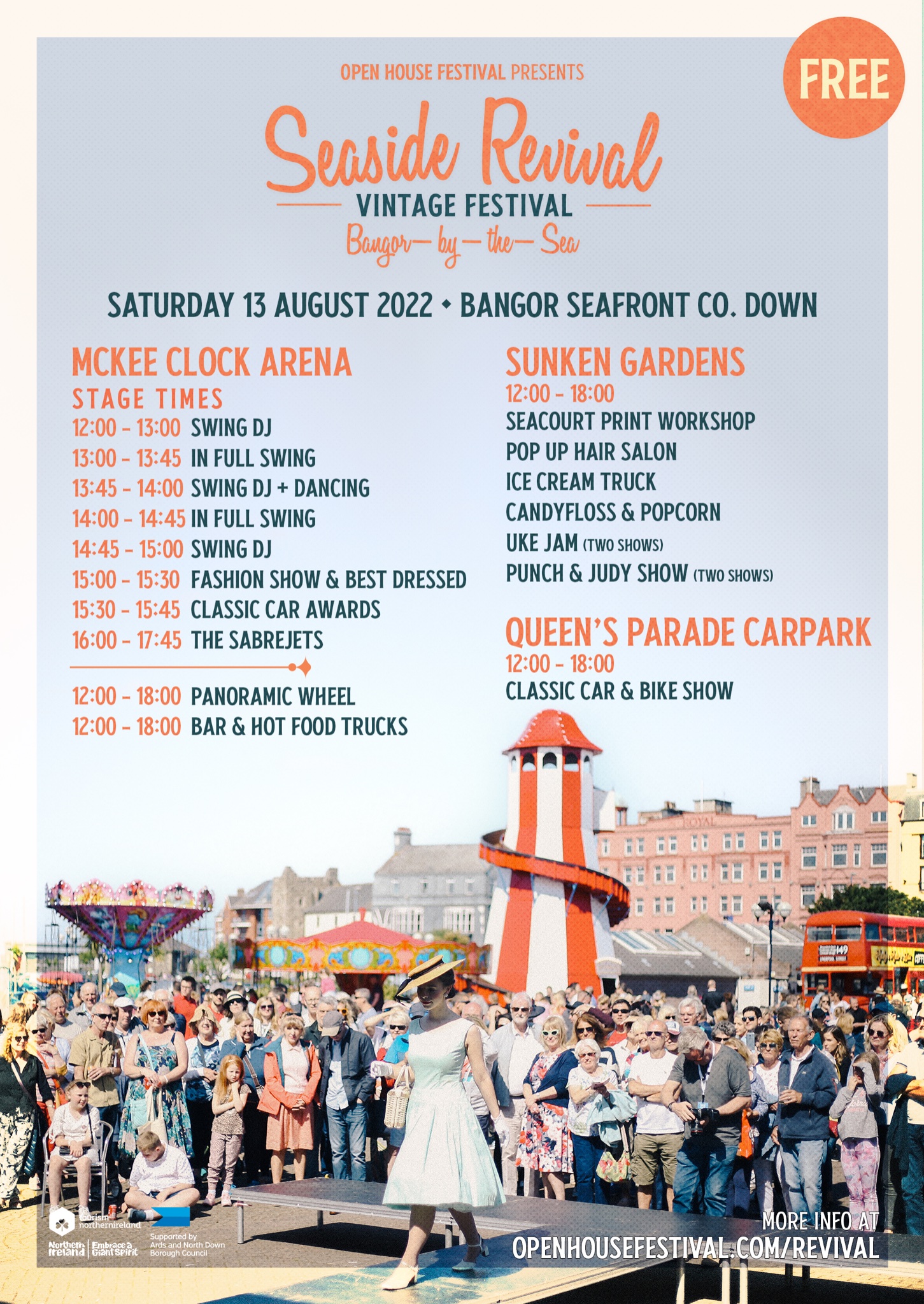
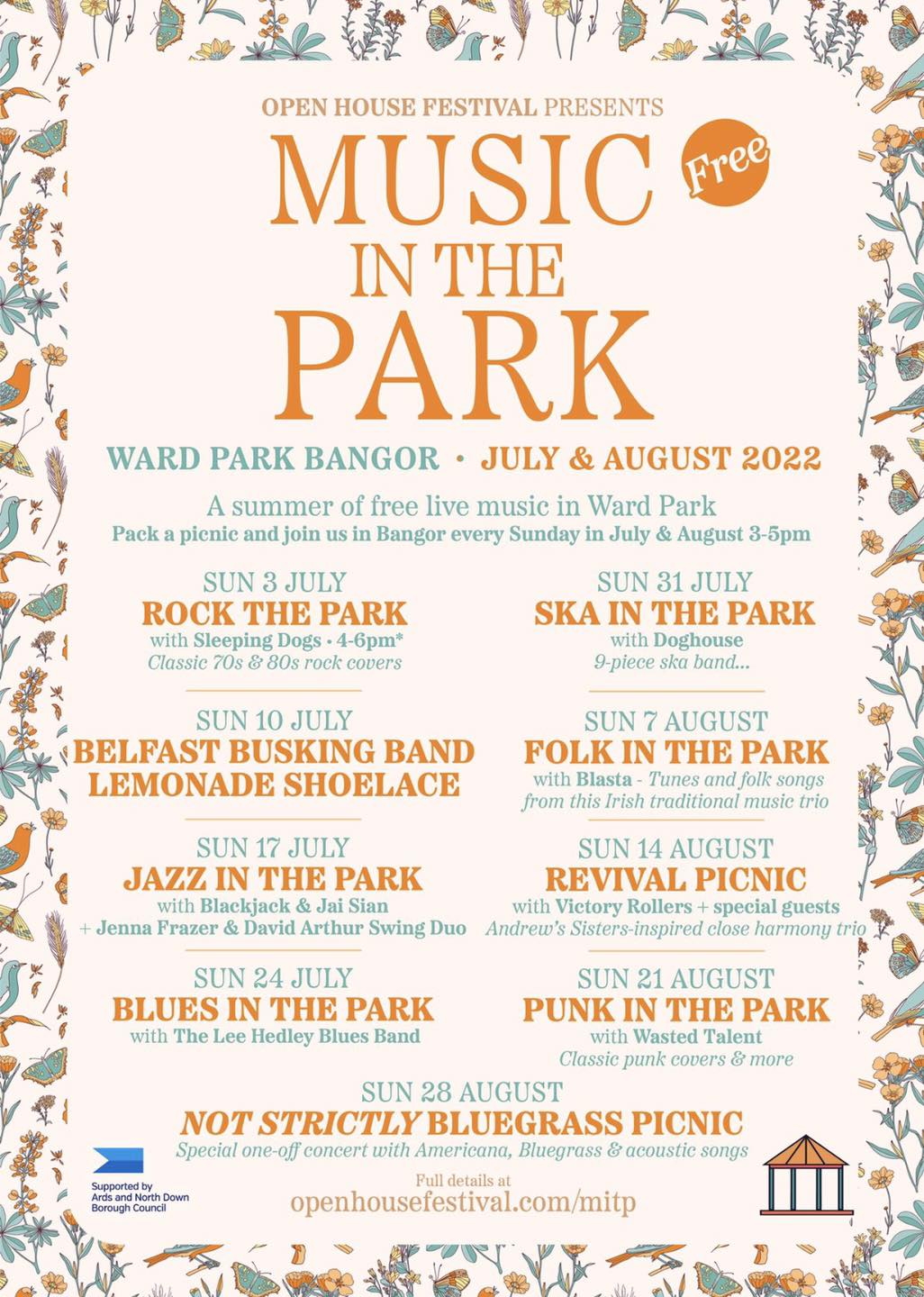
One skill I have learned is how important it is to be familiar with all operations documents so that if I were the Operations Manager, I would be able to quickly resolve unexpected scenarios and communicate my ideas effectively. In addition, what’s more valuable is the strong rapport I would need to have with contractors and vendors for the set-up to run as smoothly as possible. One example I encountered was the re-allocation of resources to meet the needs of the vendors who would be trading on the site; this included changing the format of power wattage, tables, and gazebos to meet the requirements of the bar, food stalls and entertainment acts. Another example was how the site capacity was overestimated therefore they needed to reorganise the format of the cars for the vintage car-boot sale. Rectifying these problems was of the upmost importance so the event would still take place within health and safety guidelines and not deviate from finalised plans.
On the other hand, there were occasions when I would be completing tasks independently, such as arranging tables and chairs or standing by the entrance to the site. These tasks were appreciated by the team as I was contributing to effective time management, making sure there was no delay in the starting time, but also ensuring that the public did not enter the site during the set-up. Despite these tasks being essential, I needed to remind myself that they were as equally valued as any other contribution I could have made on the day.
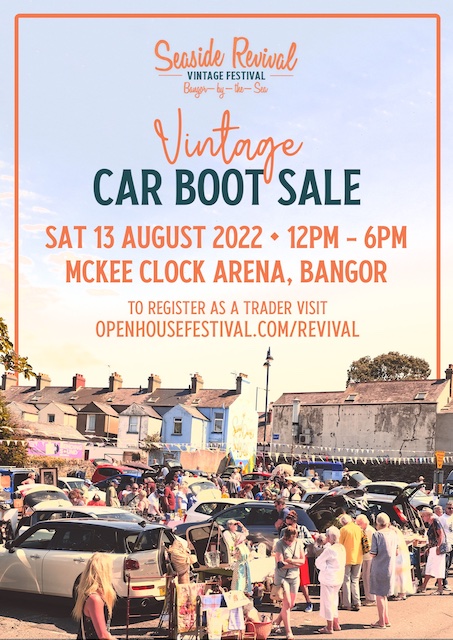
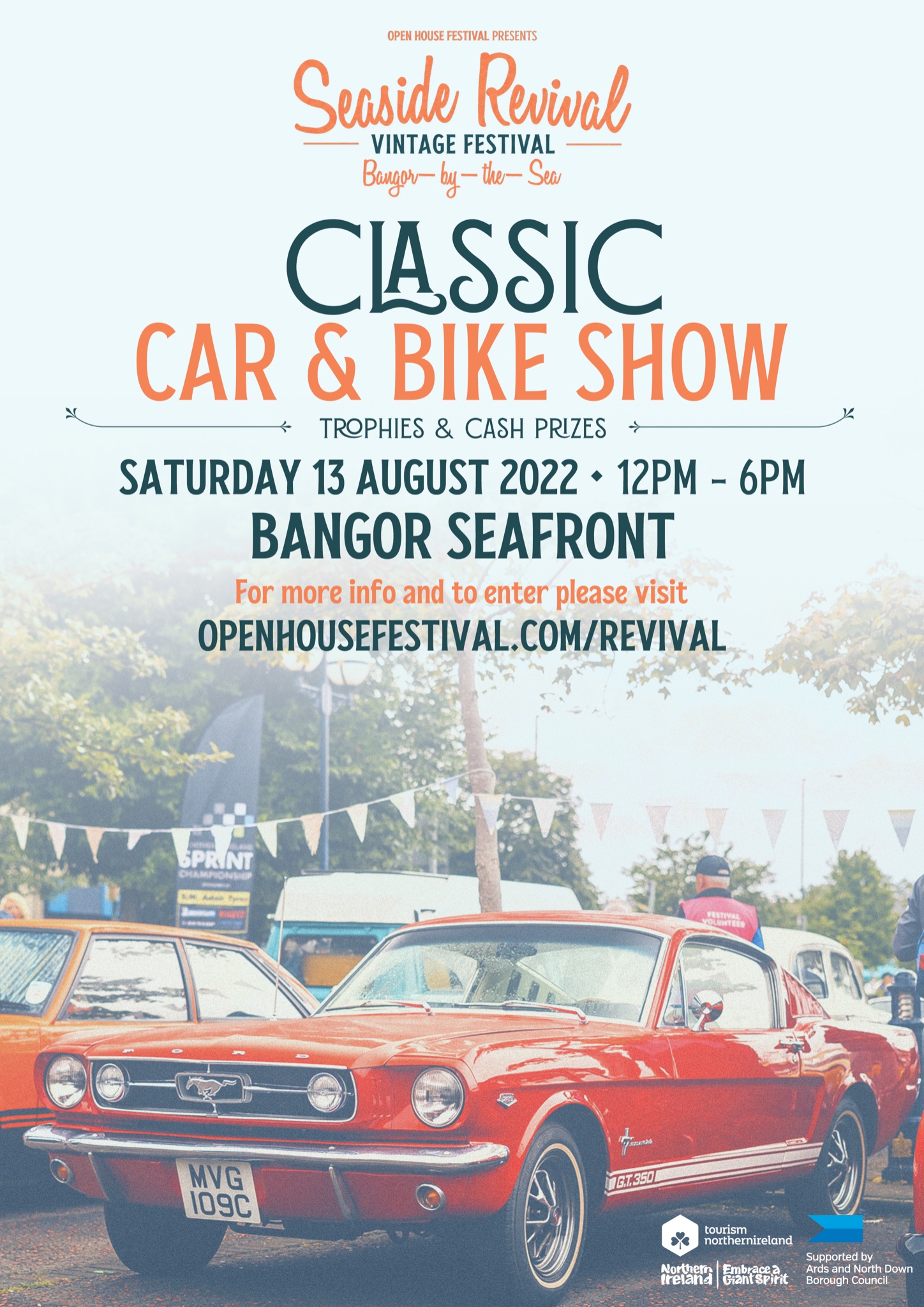
Upon my evaluation, I can now clearly see that I set my expectations too high regarding what I thought I would be completing over the weekend versus what I actually did. Initially, I expected to be given a role which involved an element of management of people or planning; Due to GDPR, I would not be able to view or have access to event plans. In addition, what I did not realise is that not only is the team of staff at Open House Festival small, but the vast majority are employed as freelancers. I now know that it is extremely unattainable in this industry to walk into a space and immediately command respect without experience or having built a longstanding professional relationship with staff and/or volunteers first. Furthermore, I have come to the realisation that responsibility will not be given to me this quickly in this process; I must establish myself as a reliable and personable colleague who can complete tasks competently.
In hindsight, I should have done more research into events management and the festival landscape before I showed up expecting a substantial role. Based on these reflections, I have read Break into the Scene: A Musician’s Guide to Making Connections, Creating Opportunities and Launching a Career by Seth Hanes (2016). Despite this book being written from the perspective of an emerging musician, I believe it’s a pragmatic tool for anyone in the creative industry. It is particularly useful for reinforcing how to build and maintain connections with people and how to effectively utilise your resources to gain work. To consolidate my understanding, I have also read Arts Management: A Practical Guide by Jennifer Radbourne and Margaret Fraser (1996). I was able read further on the benefits of festivals on a local level (pp.260-262) and the purpose of having volunteers in an arts organisation (pp.199-201).
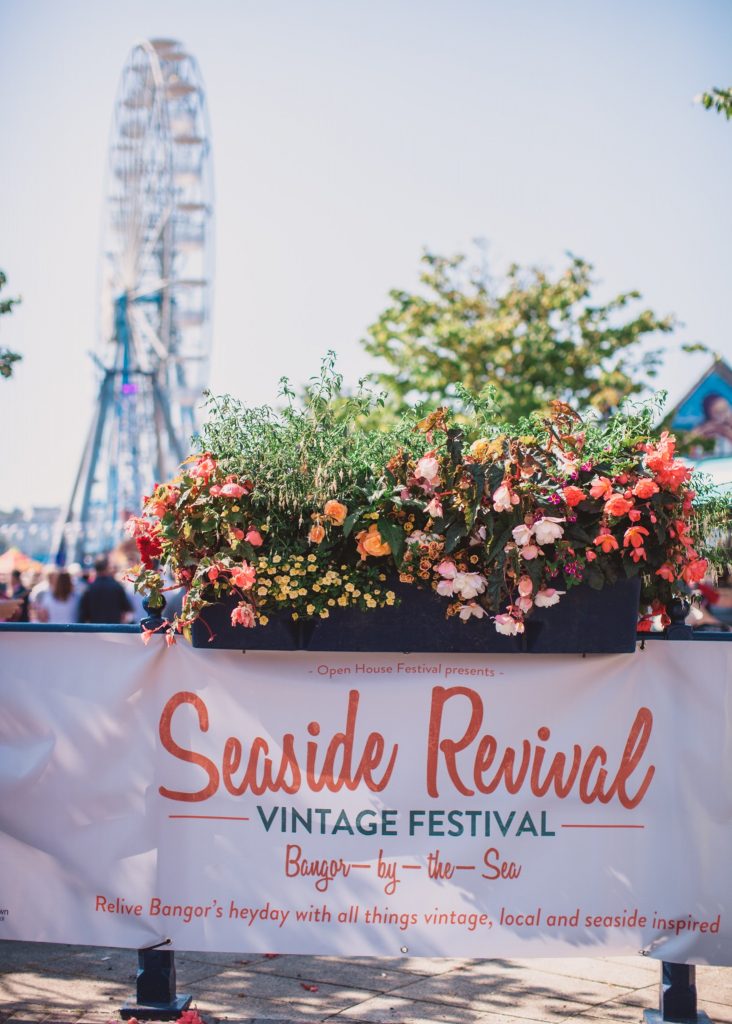
If the same scenario were to arise in the future, I would not only go in with a more open mind in relation to the tasks I would be completing, but I would also ensure that I had an individual brief with the management team. I believe this would allow me to potentially have a higher level of interaction with all members of the team and shadow as many of them as possible in turn not relying on one person to learn from. In my opinion this would allow me to manage my expectations in a realistic way.
Word Count: 1085
Bibliography
Bolton, G. (2001) Reflective Practice: Writing and Professional Development. London: Paul Chapman Publishing Ltd.
Byrnes, W. J. (2009) Management and the Arts. 4th ed. USA: Focal Press.
Classic Car and Bike Show Poster [Image]. Bangor, Northern Ireland: Open House Festival. Available from: https://scontent-lcy1-1.xx.fbcdn.net/v/t39.30808-6/297375499_5663867746957043_4475464312674747003_n.jpg?_nc_cat=106&ccb=1-7&_nc_sid=730e14&_nc_ohc=FARP57f7fx4AX9_OGwC&_nc_ht=scontent-lcy1-1.xx&oh=00_AfC7rq1dsdNQgxhHmTCd5pyL0wwYR4bgG9fhvSqaHkLBiw&oe=638025 [Accessed 22 November 2022].
Hanes, S. (2016) Break into the Scene: A Musician’s Guide to Making Connections, Creating Opportunities and Launching a Career. Place of Publication not identified.
Hinde, J. (c.1960). McKee Clock and Putting Green, Bangor, Co. Down, N.I.. [Postcard]. John Hinde Collection. Available from: https://www.johnhindecollection.com/britain_n_ireland1.html [Accessed 22 November 22].
Jasper, M. (2013) Beginning Reflective Practice. Melbourne and London: Cengage Learning.
Music in the Park Poster [Image]. Bangor, Northern Ireland: Open House Festival. Available from: https://scontent-lcy1-1.xx.fbcdn.net/v/t39.30808-6/291947267_5561288073881678_681100791455616329_n.jpg?stp=cp6_dst-jpg&_nc_cat=104&ccb=1-7&_nc_sid=8bfeb9&_nc_ohc=5ZUUzJWN0gMAX-iyrhA&_nc_ht=scontent-lcy1-1.xx&oh=00_AfBWv6G1em9_uBvS-6YK3rd0SYm-M3KGd0DzOIb5l_0ONw&oe=63810785 [Accessed 22 November 2022].
Radbourne, J. and Fraser M. (1996) Arts Management: A Practical Guide. St Leonards, Australia: Allen & Unwin Pty Ltd.
Seaside Revival Banner [Photograph]. Bangor, Northern Ireland: Open House Festival. Available from: https://scontent-lcy1-1.xx.fbcdn.net/v/t39.30808-6/299358677_5683789861631498_4961599890267684231_n.jpg?_nc_cat=102&ccb=1-7&_nc_sid=730e14&_nc_ohc=gM1d49FUfjsAX8Gk4O-&_nc_ht=scontent-lcy1-1.xx&oh=00_AfBIeH0cV5SCDZbMB-BKXB9V-qAO7ijlN3x46UwswQ8G3g&oe=638263FA [Accessed 22 November 2022].
Seaside Revival Poster [Image]. Bangor, Northern Ireland: Open House Festival. Available from: https://scontent-lcy1-1.xx.fbcdn.net/v/t39.30808-6/290627368_5552791141398038_7471361564796033052_n.jpg?_nc_cat=100&ccb=1-7&_nc_sid=730e14&_nc_ohc=E1FEyv_K3sEAX8fDjG5&_nc_ht=scontent-lcy1-1.xx&oh=00_AfDkmFLMlRXXuh9hYhWrUq26wb4O1N0BCn5Bt02htKvGMg&oe=6382340D [Accessed 22 November 2022].
Vintage Car Boot Sale Poster [Image]. Bangor, Northern Ireland: Open House Festival. Available from: https://scontent-lcy1-1.xx.fbcdn.net/v/t39.30808-6/295863717_5629331293744022_5889932830669719820_n.jpg?_nc_cat=100&ccb=1-7&_nc_sid=730e14&_nc_ohc=otB3-SVTUOAAX_KvQAC&_nc_ht=scontent-lcy1-1.xx&oh=00_AfB6EEBVI-y8Gso8WHKLcU1oRwveXpw7kpOUQtZioDOecQ&oe=6380EF [Accessed 22 November 2022].
Playing It Safe
You May Also Like
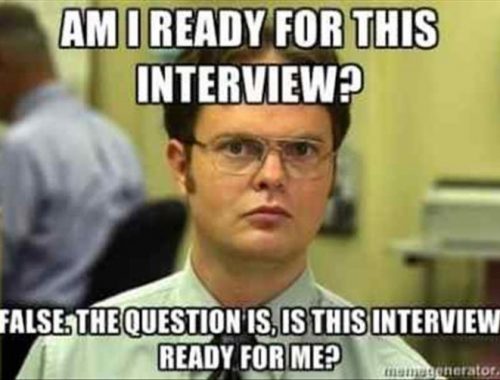
“Fake it ‘til you make it!”: Finding Success in a Simulated Interview
22 February 2023
Job Interviews: Selling Yourself For A Pay Cheque
24 February 2023
